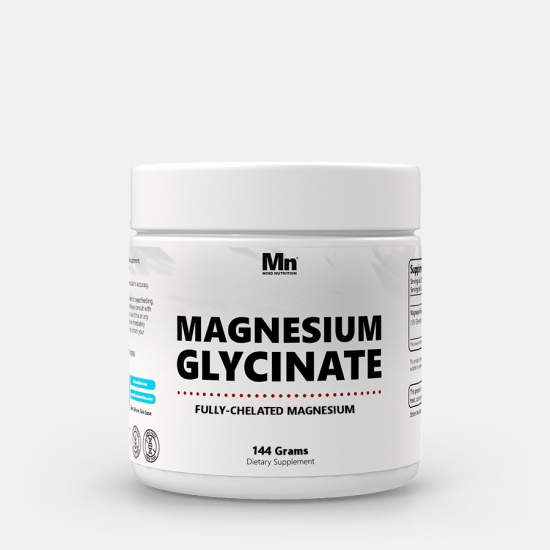Magnesium is one of the essential minerals in the human body. Maintaining a healthy heart, blood pressure, and muscle function is needed. Several studies have shown that magnesium supplementation may reduce the risk of heart disease and stroke. Additionally, it’s a potent anti-inflammatory and antioxidant.
Magnesium Glycinate vs. Magnesium Citrate
As an electrolyte, magnesium is essential for your body’s electrical system and functions. It involves several critical processes, including regulating blood sugar, maintaining a healthy immune system, and promoting restful sleep. Several studies have shown that magnesium can help reduce heart disease risk, increase “good” HDL cholesterol levels, and prevent high blood pressure. It also can lower blood sugar levels and improve insulin sensitivity, preventing diabetes from developing. It has also been found to promote nerve and muscle function and prevent migraines. It’s also used to treat arrhythmia and encourage bone strength. Magnesium glycinate powder is a popular form of supplemental magnesium because it is quickly absorbed in the body, making it an excellent choice for people looking for immediate effects. However, it does have less bioavailability (the degree that a substance activates throughout the body) than organic compounds like citrate and malate. This means you need to take more than one dose daily to get the benefits.
What is Magnesium Glycinate?
Magnesium is one of the essential minerals your body needs to be healthy and function properly. It’s required for more than 300 biological processes and chemical reactions in the body, including keeping your muscles and heart working the way they should. Low magnesium levels can lead to several health issues, including headaches, anxiety, and insomnia. Taking magnesium supplements can help reverse these deficiencies and restore proper body functioning. The recommended daily amount of magnesium varies by age and gender, but it’s typically between 250 to 350 milligrams daily. Men over 70 and women under 18 are most likely to have low dietary intakes, so it’s essential to ensure you get enough of this mineral through diet. Several studies have shown that magnesium can improve sleep by relaxing muscle tissue, decreasing leg cramps and spasms, reducing tension and anxiety, and fighting pain — all of which can keep you up at night. It can also enhance focus, learning, and information retention/memory.
Dosage
Magnesium glycinate is absorbed very quickly, which makes it an effective way to get magnesium into your body. It also doesn’t cause the same side effects as other forms of magnesium, such as stomach upset or loose stools. A typical dose of magnesium glycinate is around 350 milligrams daily, the safest amount for most adults to take. Higher doses can treat certain conditions, such as leg cramps during pregnancy and stress and anxiety. Studies suggest that people with high blood pressure or heart disease may benefit from a magnesium supplement. It can slightly decrease blood pressure and help break down sugars, reducing insulin resistance. It has also been shown to lower the risk of stroke in some studies. It can also regulate gamma-aminobutyric acid (GABA), which is essential for relaxation and sleep. It can also help treat restless leg syndrome, a common condition that causes sudden, uncontrollable movement in the legs during sleep. It can be found in many forms, including tablets, capsules, and liquid supplements.
Effects
Magnesium Glycinate is a popular supplement choice for people looking to increase their daily magnesium intake. This mineral helps promote healthy heart function, blood pressure levels, and bone and muscle health. It also plays an essential role in regulating nerve impulses and supporting muscle relaxation. Studies show it can help reduce anxiety, stress, and cramps. While low magnesium levels aren’t familiar, they can contribute to high blood pressure, heart disease, and type 2 diabetes. In addition to helping maintain healthy heart function and blood pressure levels, magnesium is a powerful antioxidant that can protect the body against oxidative stress. It also works to support bone and muscle health and promotes healthy sleep. The body naturally gets most of its magnesium from dietary sources like dark leafy greens, beans, and avocados.
Warnings
Magnesium is an essential mineral that helps maintain a healthy heart. It’s also necessary for nerve function and muscle contraction. Most people don’t get enough magnesium in their diet, leading to many health problems. However, a magnesium deficiency doesn’t necessarily mean you must take a supplement to restore your levels. Some people benefit from a supplement, but others do better with a more natural approach. An accessory is an excellent option to increase your daily magnesium intake. But be sure to research and choose the right one for you. The best magnesium supplements are chelated forms that are more bioavailable and less likely to cause side effects. These include glycinate, magnesium citrate, and other soluble magnesium compounds. They’re often easier to digest and are well tolerated by most people.
Read also : newsobtain










